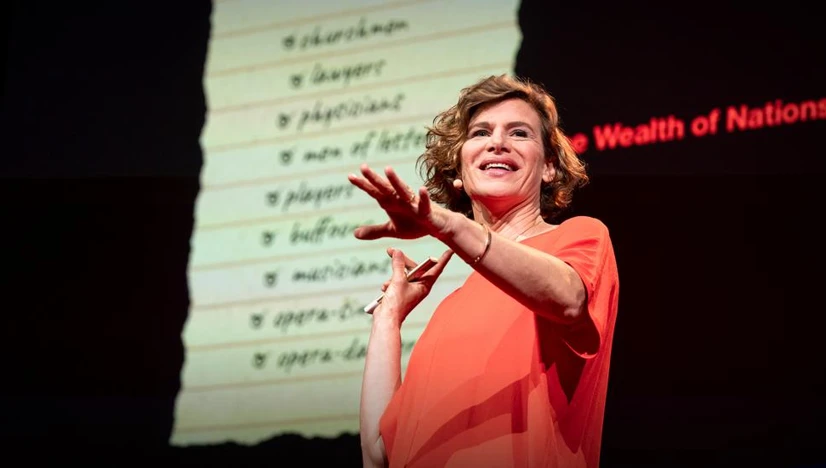What is economic value, and who creates it?
TedTalks, 2019
Where does wealth come from? Who are the wealth creators? And what actually destroys wealth? In this deep dive into global economics, Mariana Mazzucato explains how economists lost sight of what value means. With a brief historic overview of Quesnay's Tableau Economique, Smith's Wealth of Nations, and the emergence of neoclassical economics, she shows how thinking about output has changed and what this means for our current financial system and society in general. According to Mariana Mazzucato, value is not just price.
Comment from our editors:
Mazzucatos intervention is an important critique of mainstream economics since it touches on the fundamentals of pricing and value creation. The crucial aspect is the paradigm change around value-creating activities. Neoliberal ideology made us think that only private firms can generate meaningful value, this myth is now debunked with the help of Mazzucato. The alternative thinking on value should be a radical common-place for all plural economists and should never be left out in any econ101 class.
More in-depth information can be found in her recent book The Entrepreneurial State: debunking public vs. private sector myths or in this additional article.
Go to: What is economic value, and who creates it?

